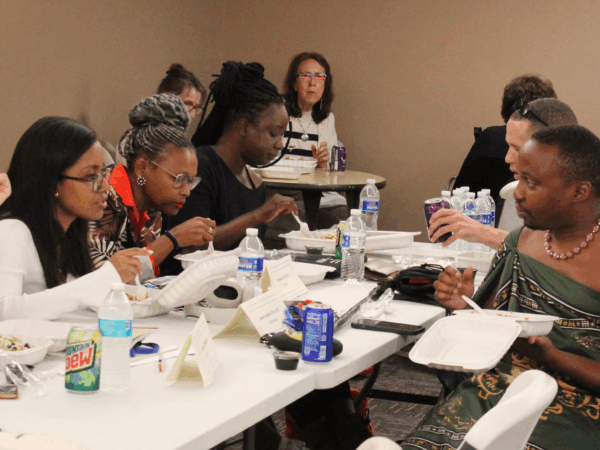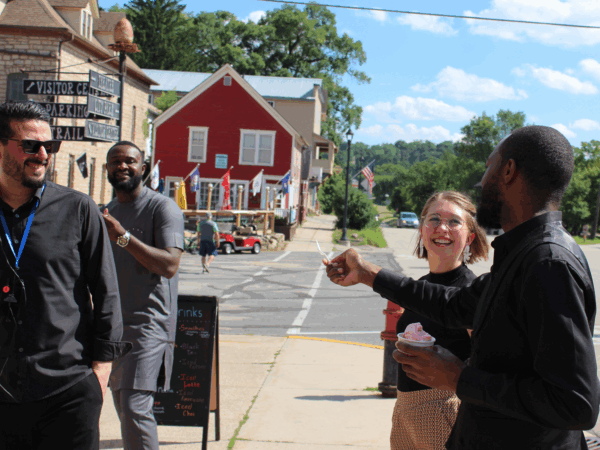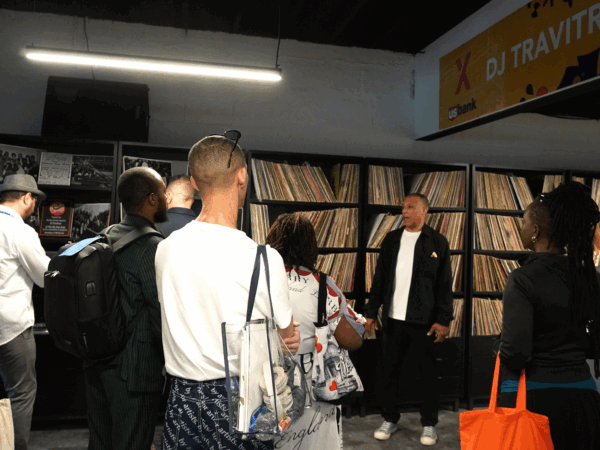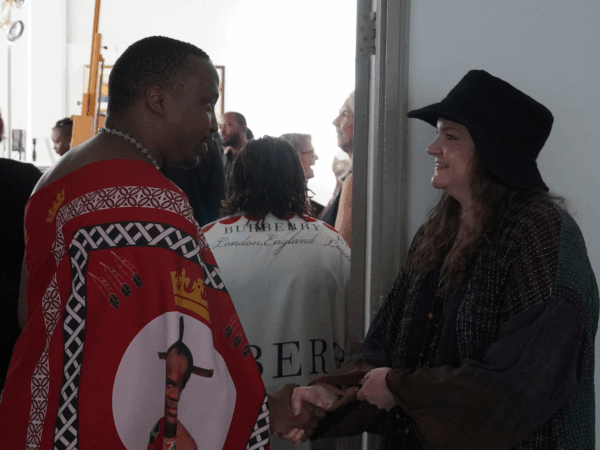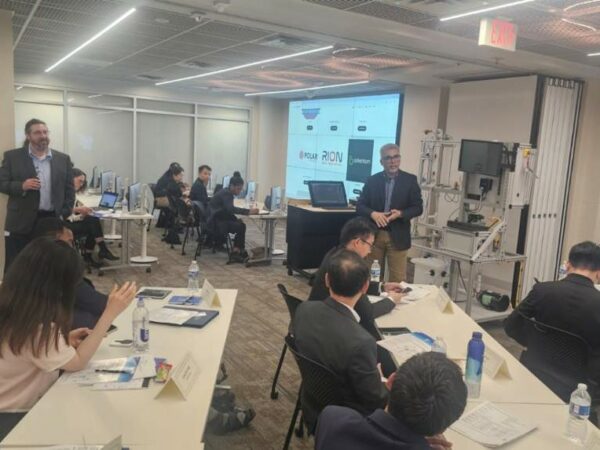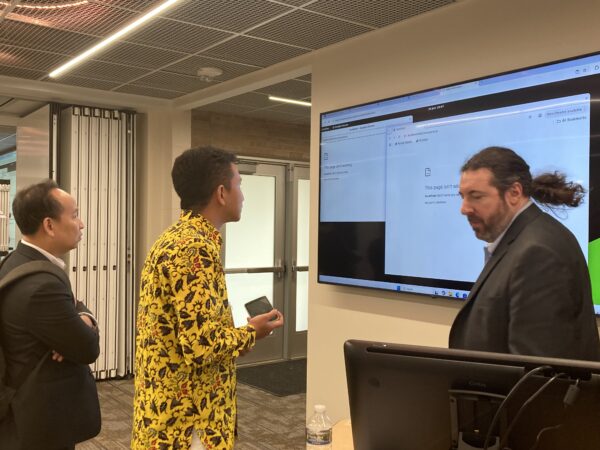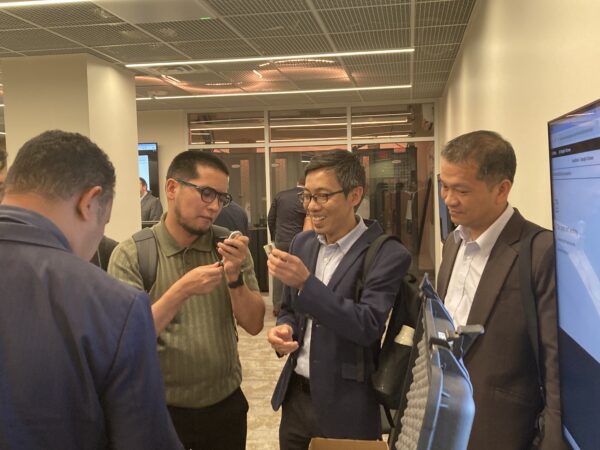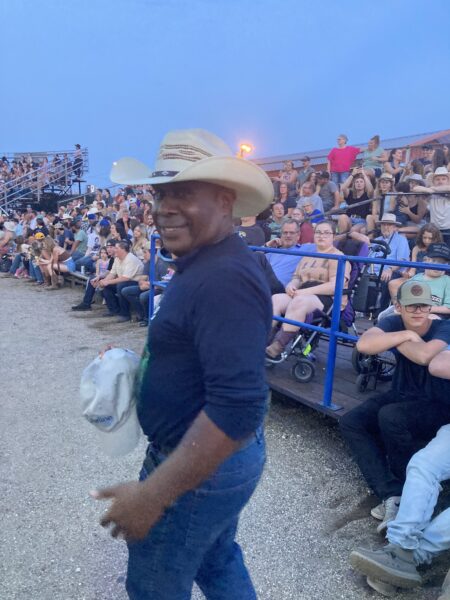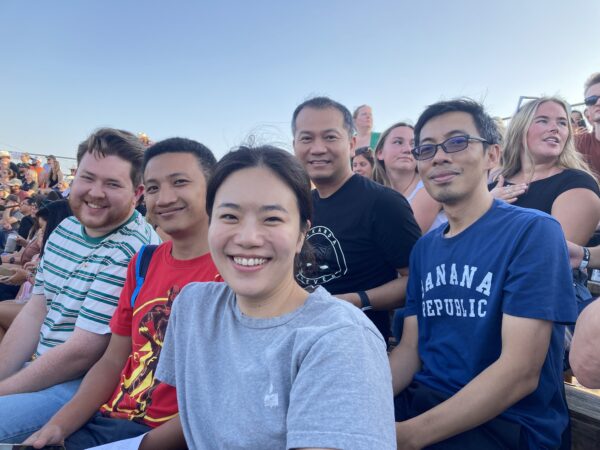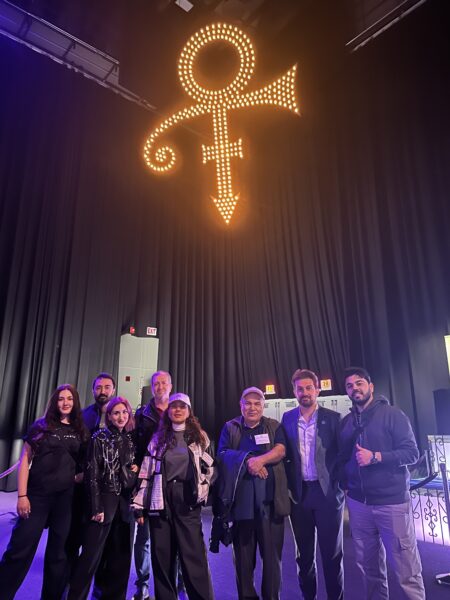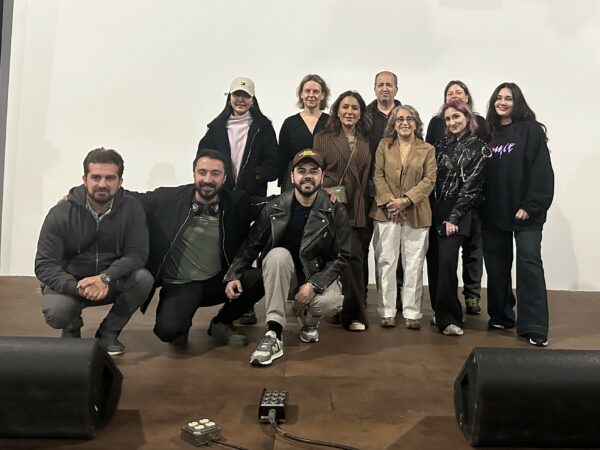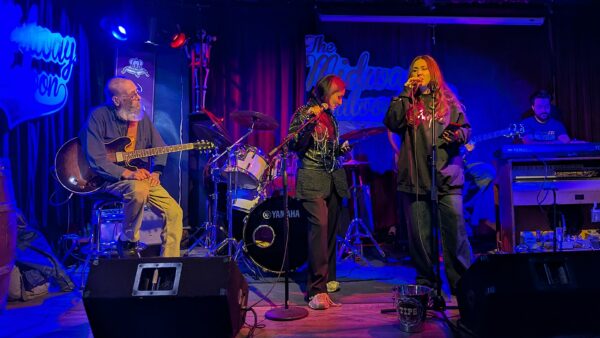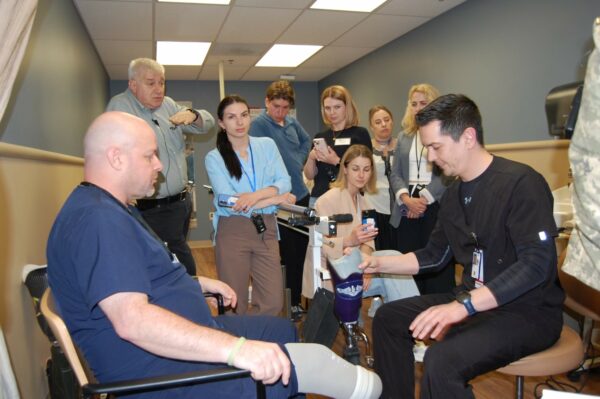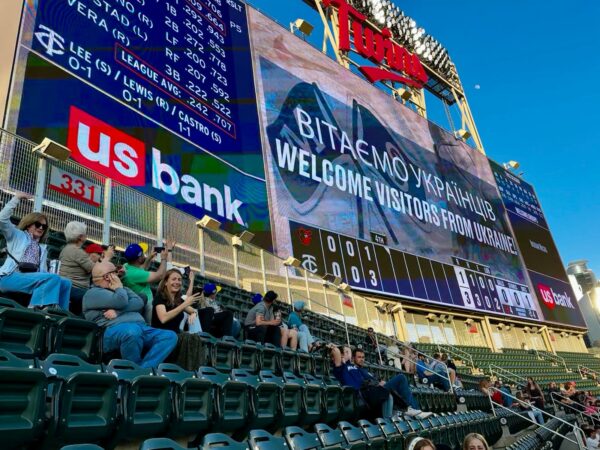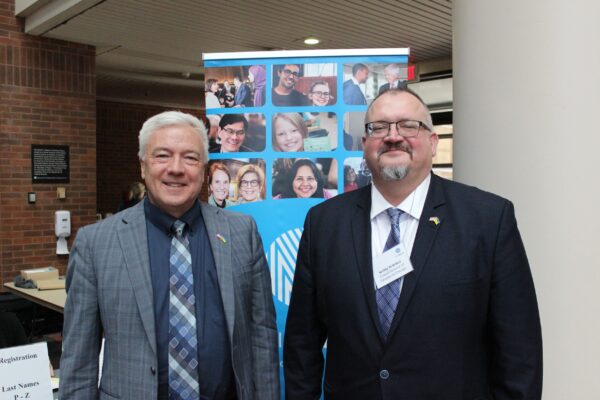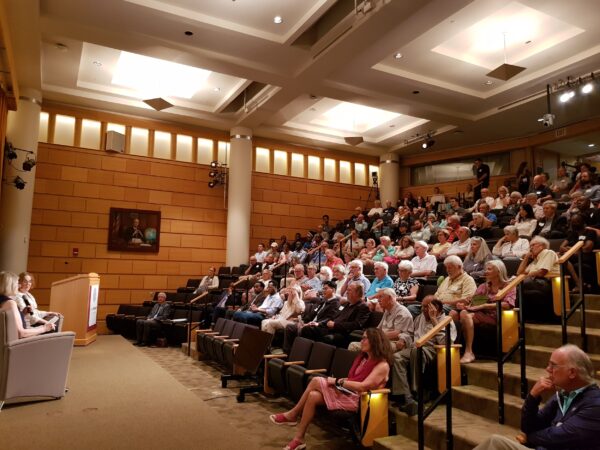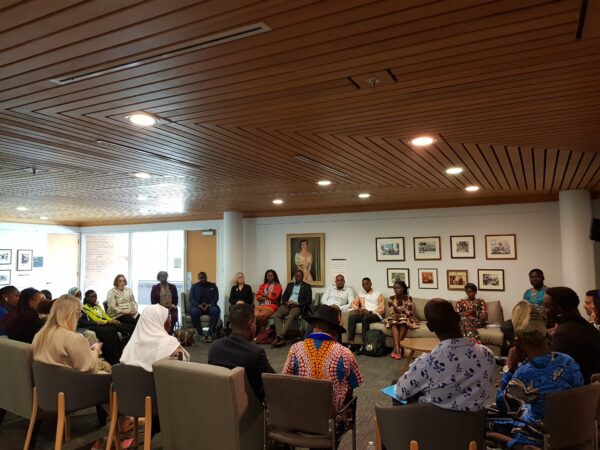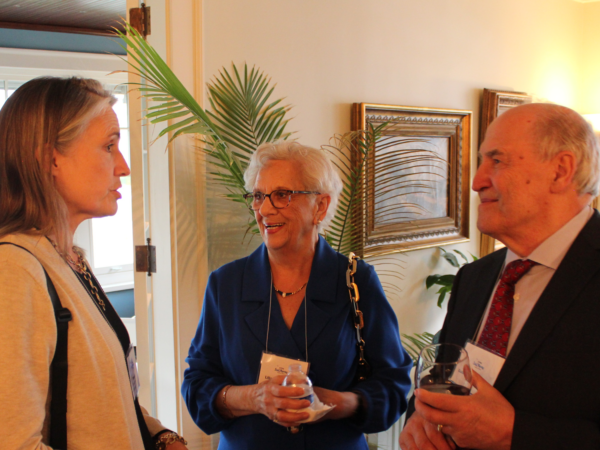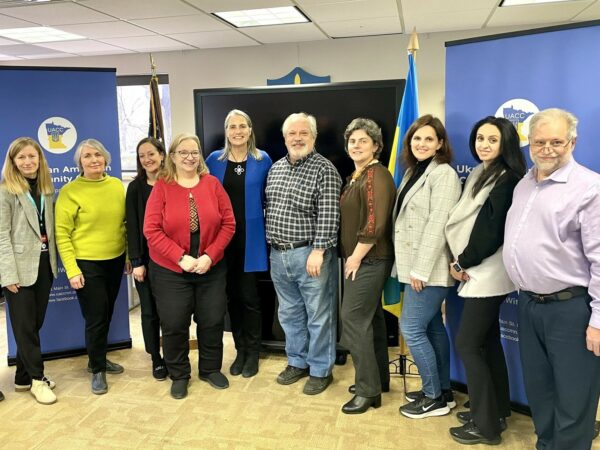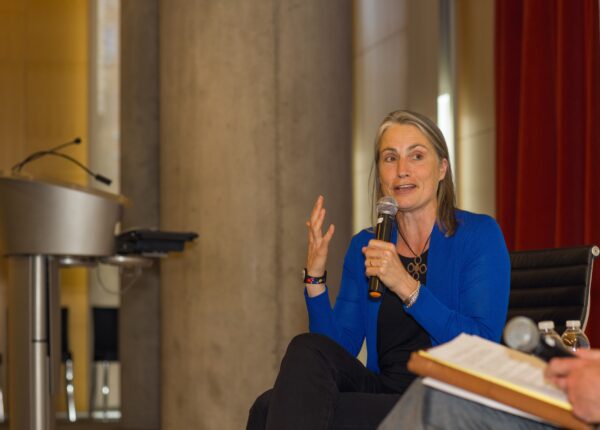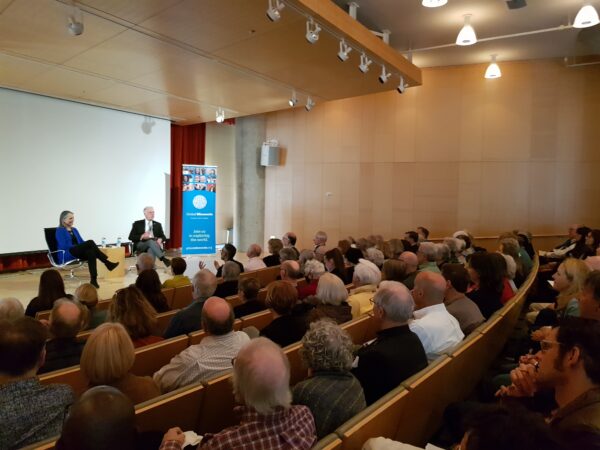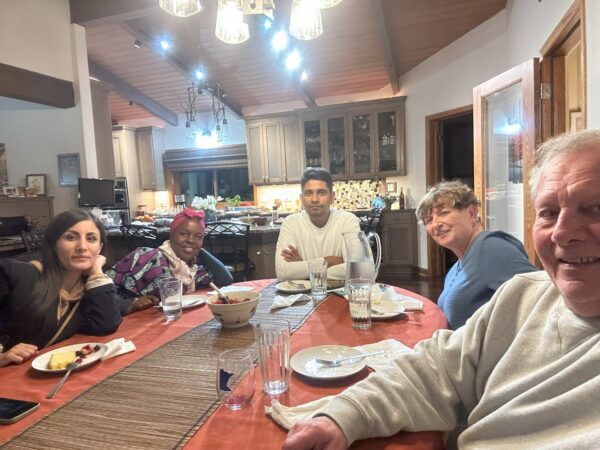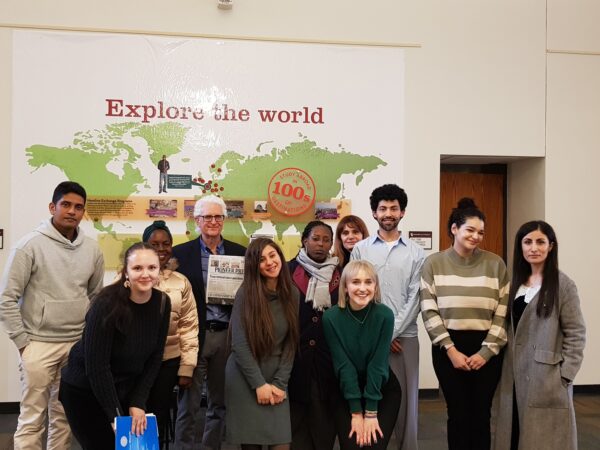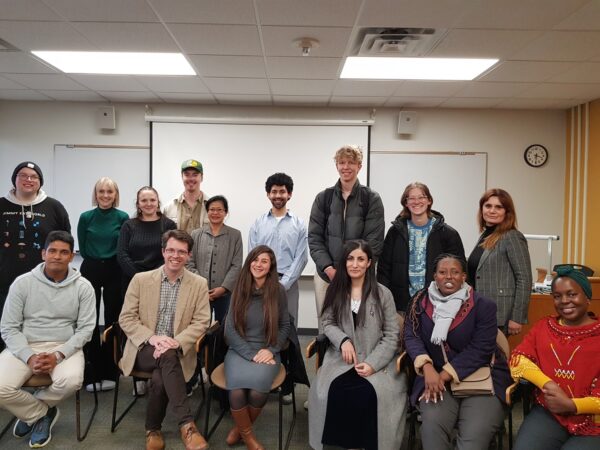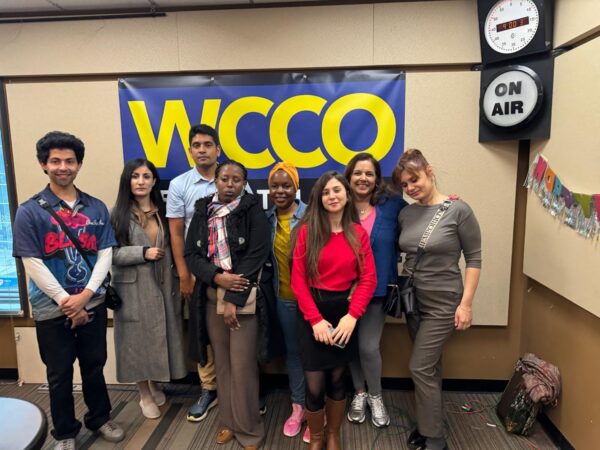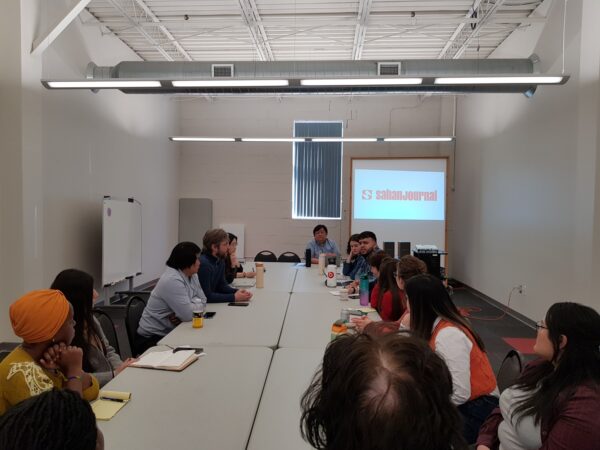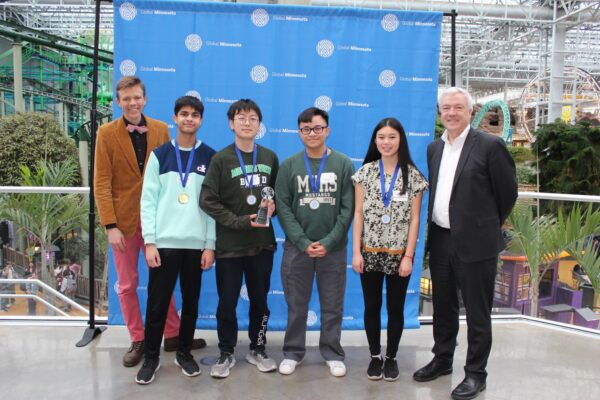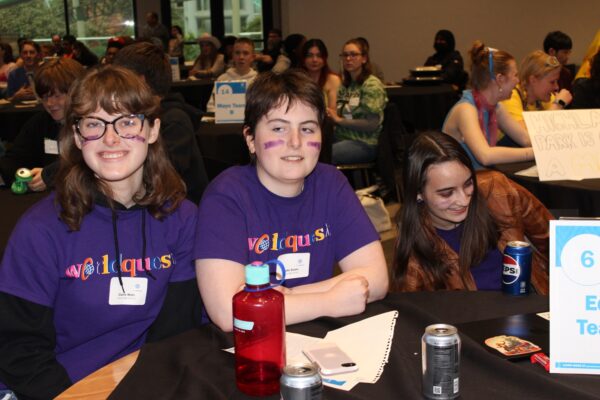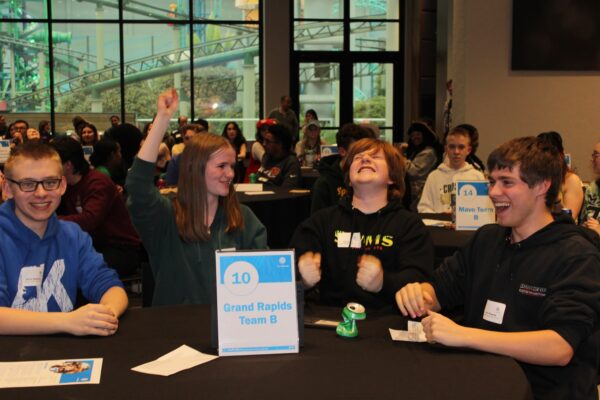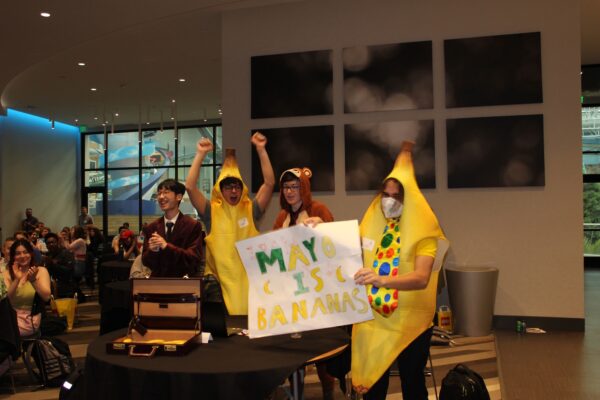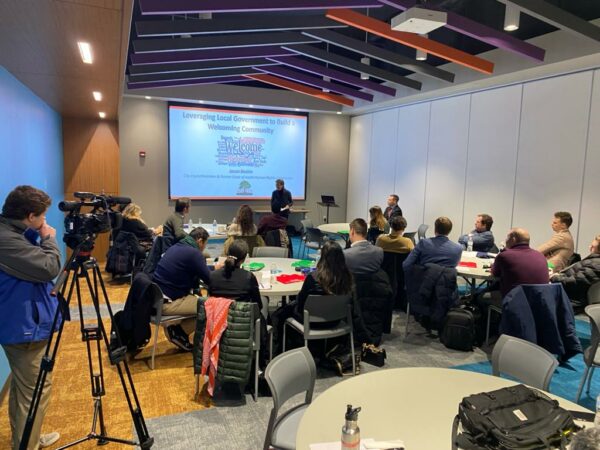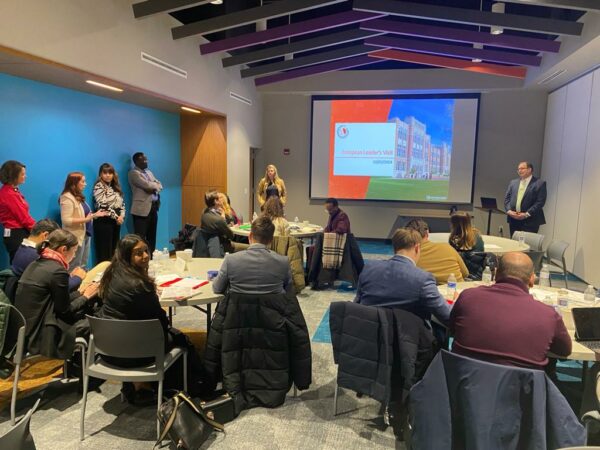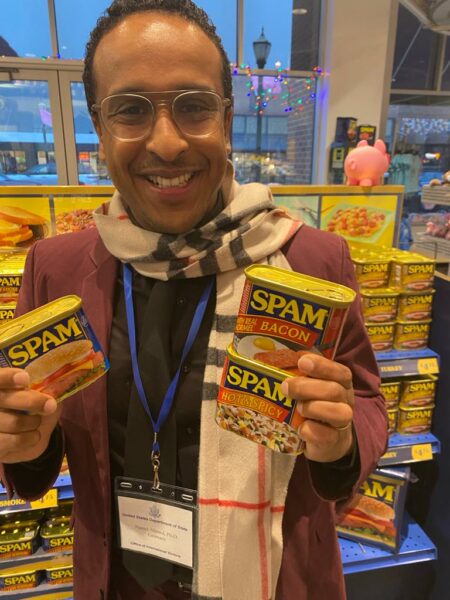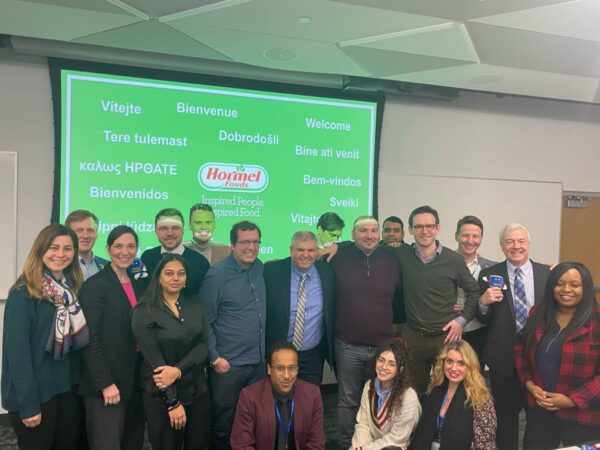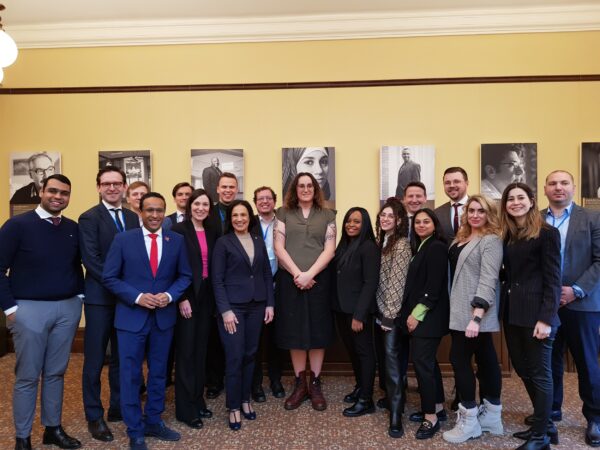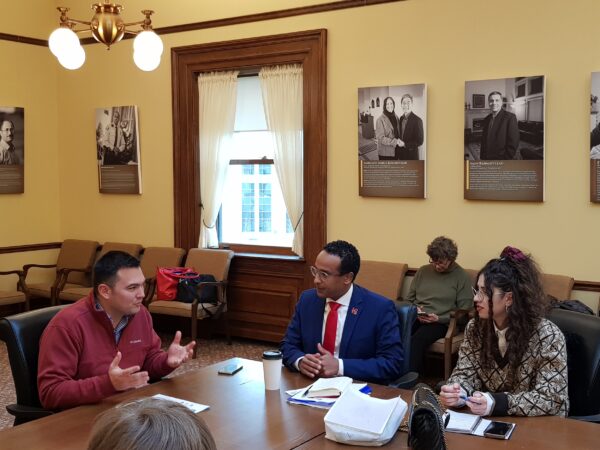On Labor Day, the bustle of the Minnesota State Fair carried an extra layer of meaning. Among the families, food stands, and carnival rides, Global Minnesota welcomed a delegation of disability rights leaders from Pakistan whose work is shaping a better future in their home communities. Their visit was part of the U.S. State Department’s International Visitor Leadership Program, and Minnesota became the stage for a remarkable exchange of ideas and friendship.
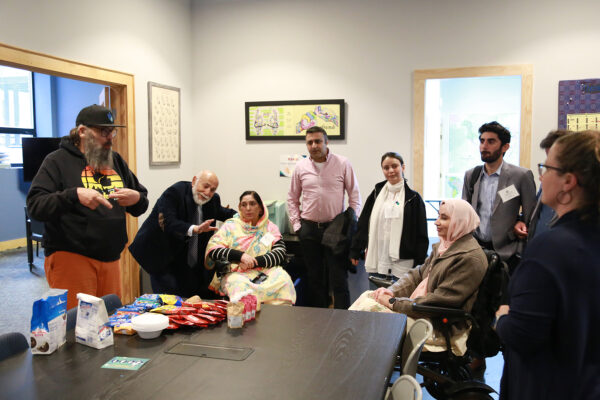
The day began with a conversation with State Fair staff sharing their expertise on how the “Great Minnesota Get-Together” strives to welcome everyone. From accessible bathrooms to sensory-friendly areas, the visitors learned how small details can have a big impact. Meeting with the Fair’s CEO, Marketing Director, and Guest Services Supervisor, the group discovered not only best practices but also the deep commitment which Minnesotans have toward ensuring public spaces can be open to all people. Global Minnesota volunteer and Board Member Dr. Jacob Gayle reflected on his own experience accompanying members of the delegation:
“The Minnesota State Fair was a unique introduction to Minnesota for the Pakistani delegates and we were grateful to have played a part in introducing them to Minnesota. We turned to a random agricultural expert who was volunteering at the University of Minnesota booth and guess what? He was from Pakistan! This fortuitous, random encounter highlighted the fact that Minnesota is truly a global microcosm and ecosystem. We all truly came to the ‘Great Minnesota Get-Together’ as strangers and left as friends.”
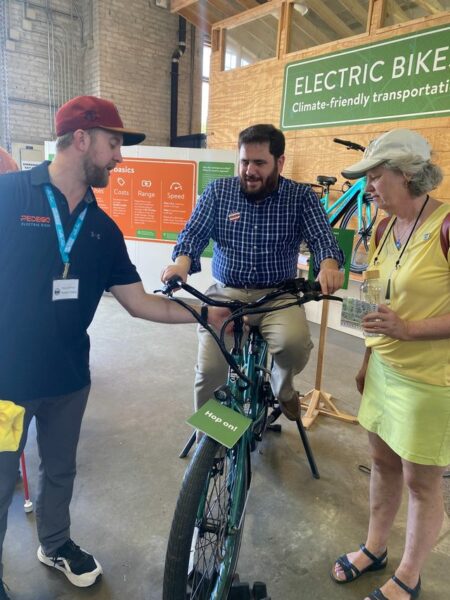
Over shared plates of falafel and kebabs (the original food on a stick) at the Holy Land stall in the International Bazaar, the delegation and Global Minnesota volunteers found common ground through laughter, questions, and stories. Special thanks to Marriott for providing the food and Fair tickets through the Marriott Dinner Diplomacy grant, which creates opportunities for people to connect for cultural exchange over shared food. Touring the fairgrounds, visitors especially appreciated the Minnesota Council on Disability booth, where they connected directly with local advocates and compared the challenges and hopes that unite disability rights work across borders.
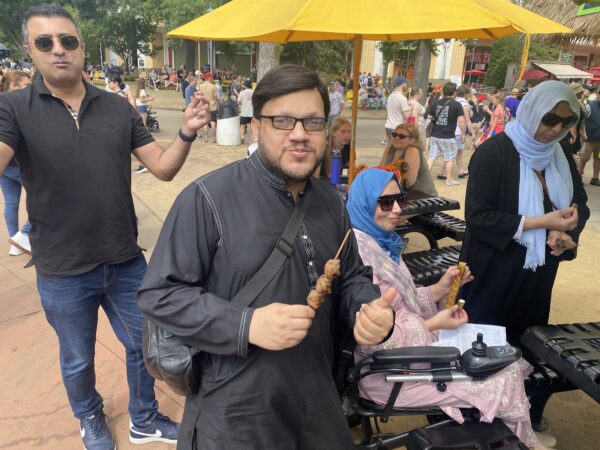
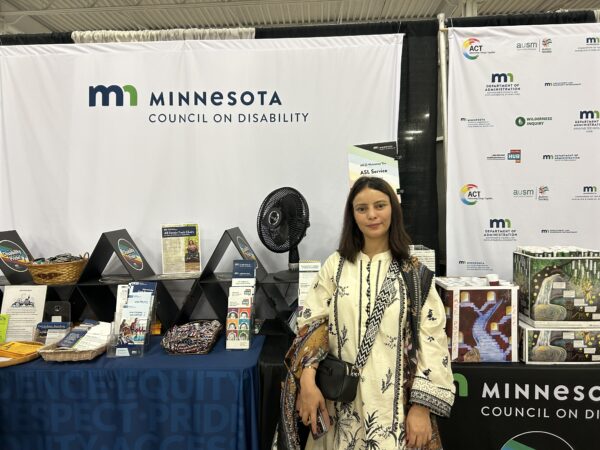
From prize-winning quilts to the bounty of the Horticulture Building, from fried cheese curds to the vibrancy of the Education Building, the delegation experienced not just the State Fair but the full array of everything Minnesota has to offer.
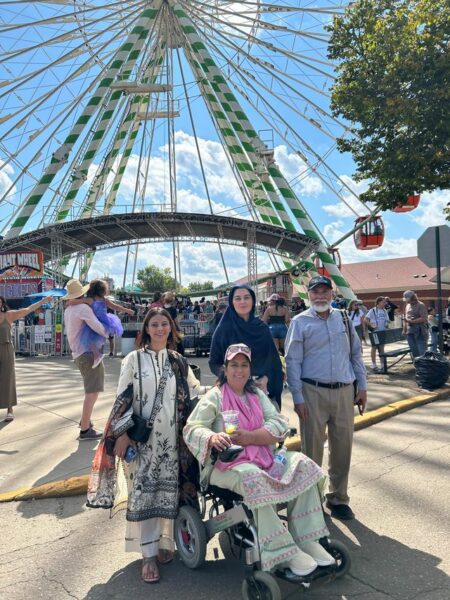
Global Minnesota is proud to partner with Global Ties U.S. and the U.S. State Department to create activities and experiences that foster meaningful professional and cultural exchange between visiting international delegations and people here in Minnesota.
